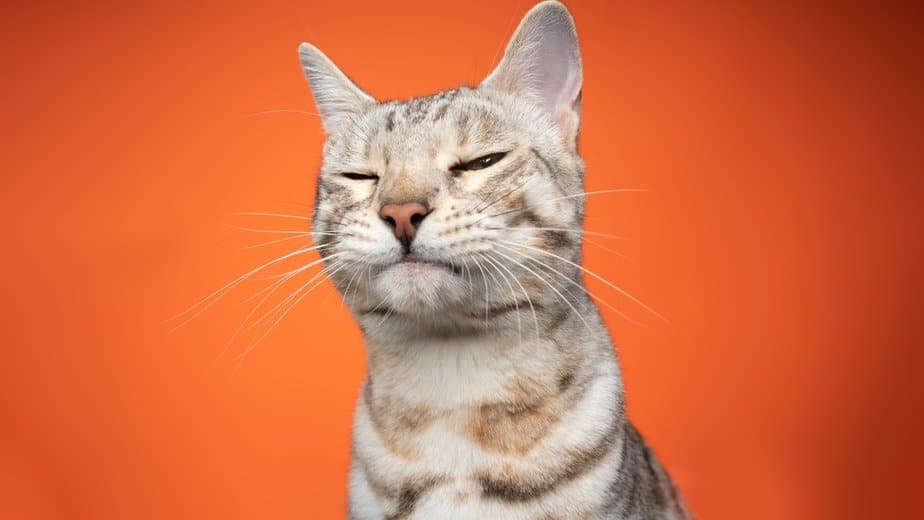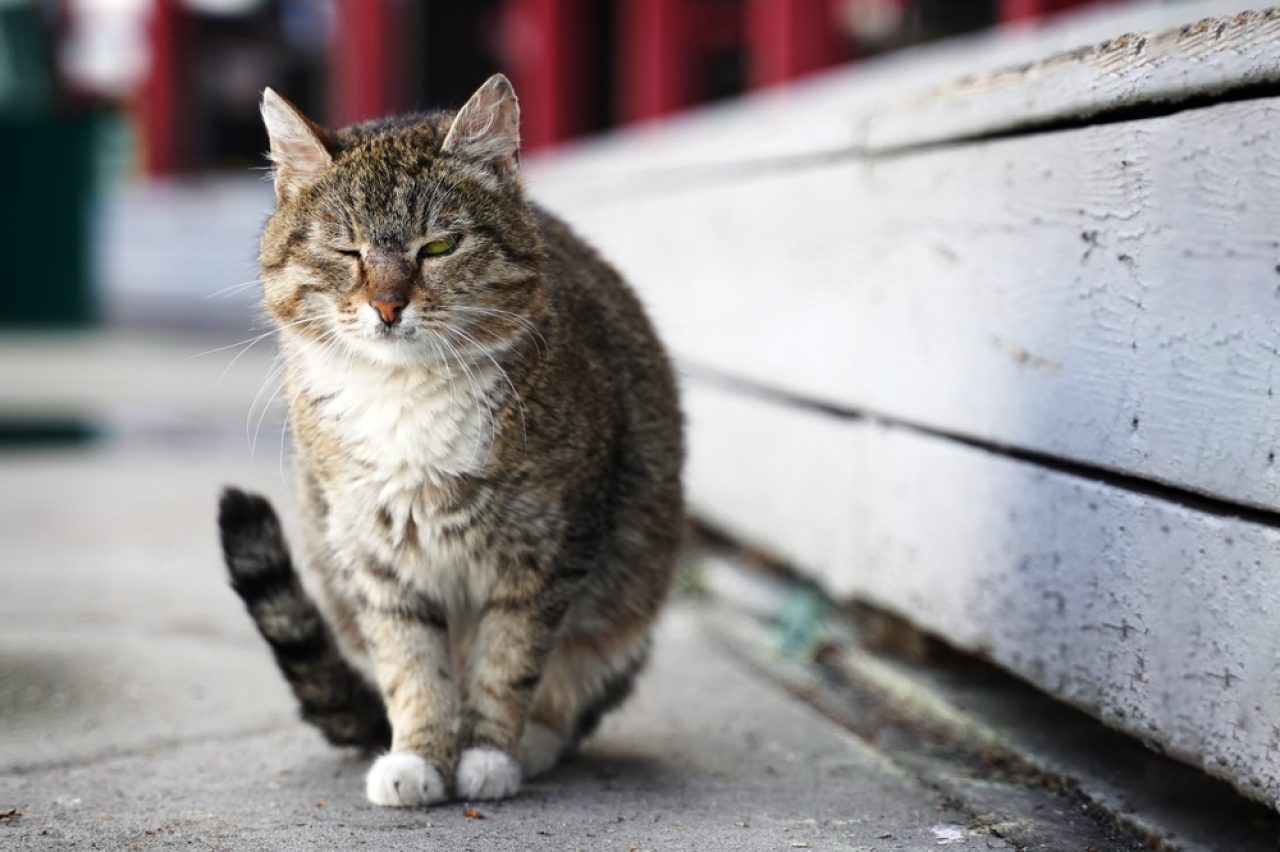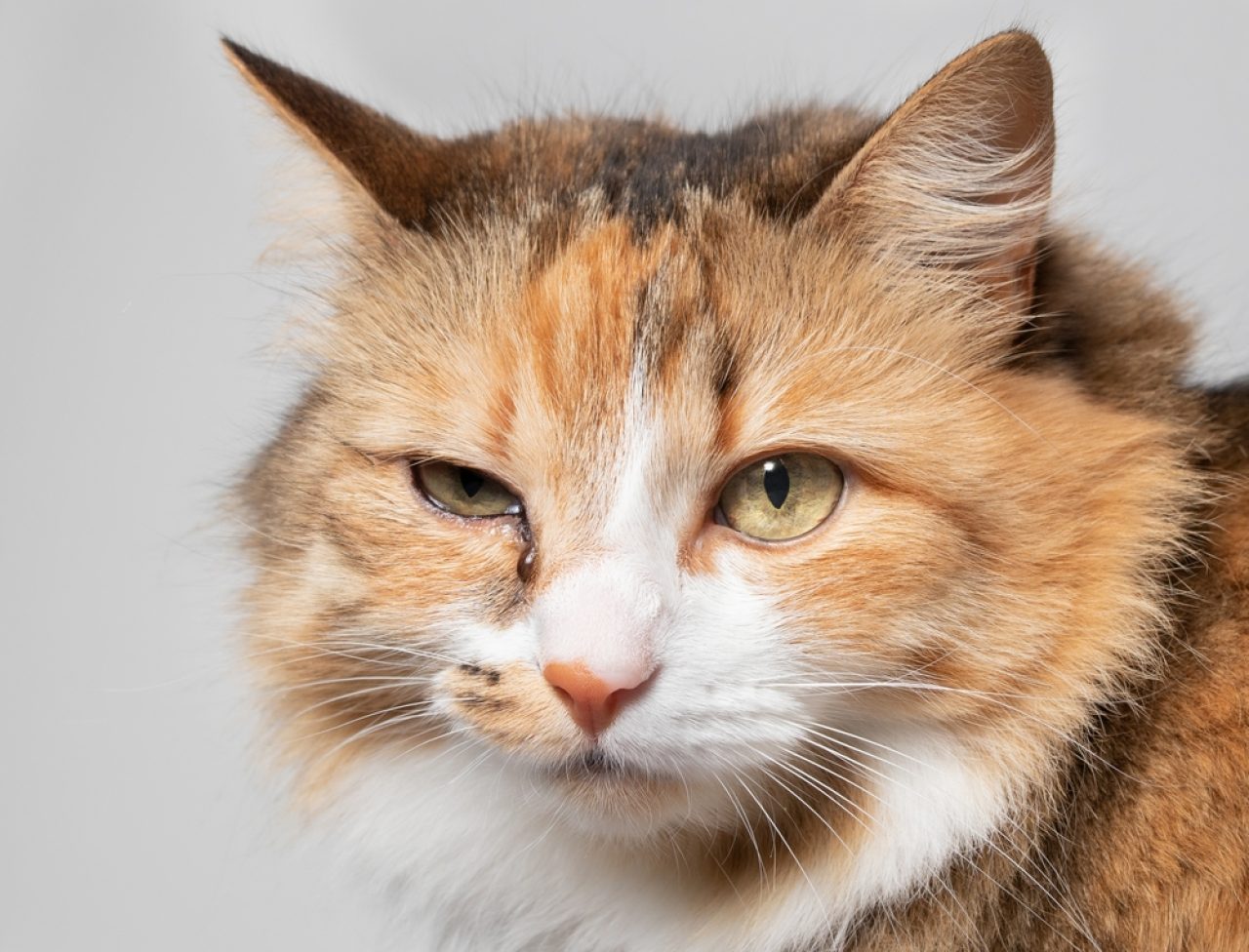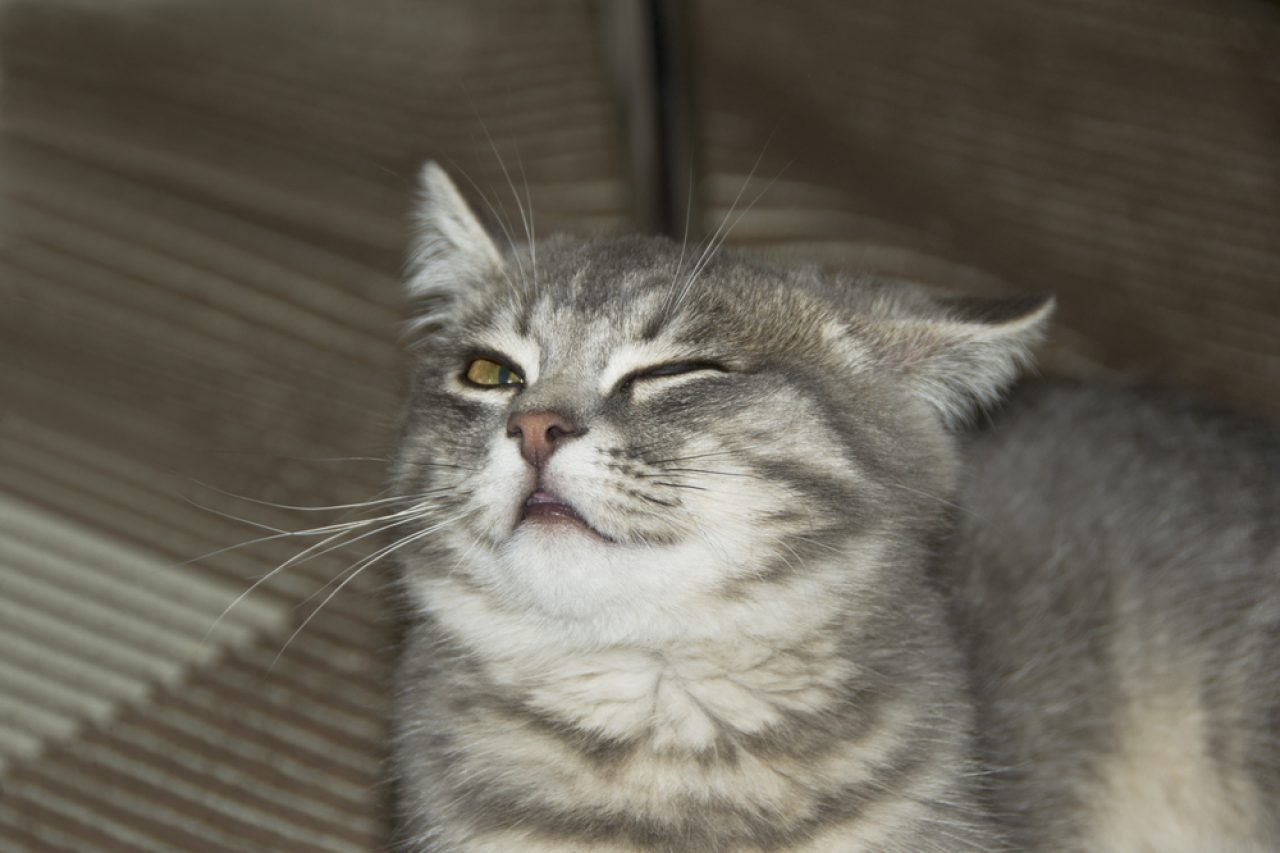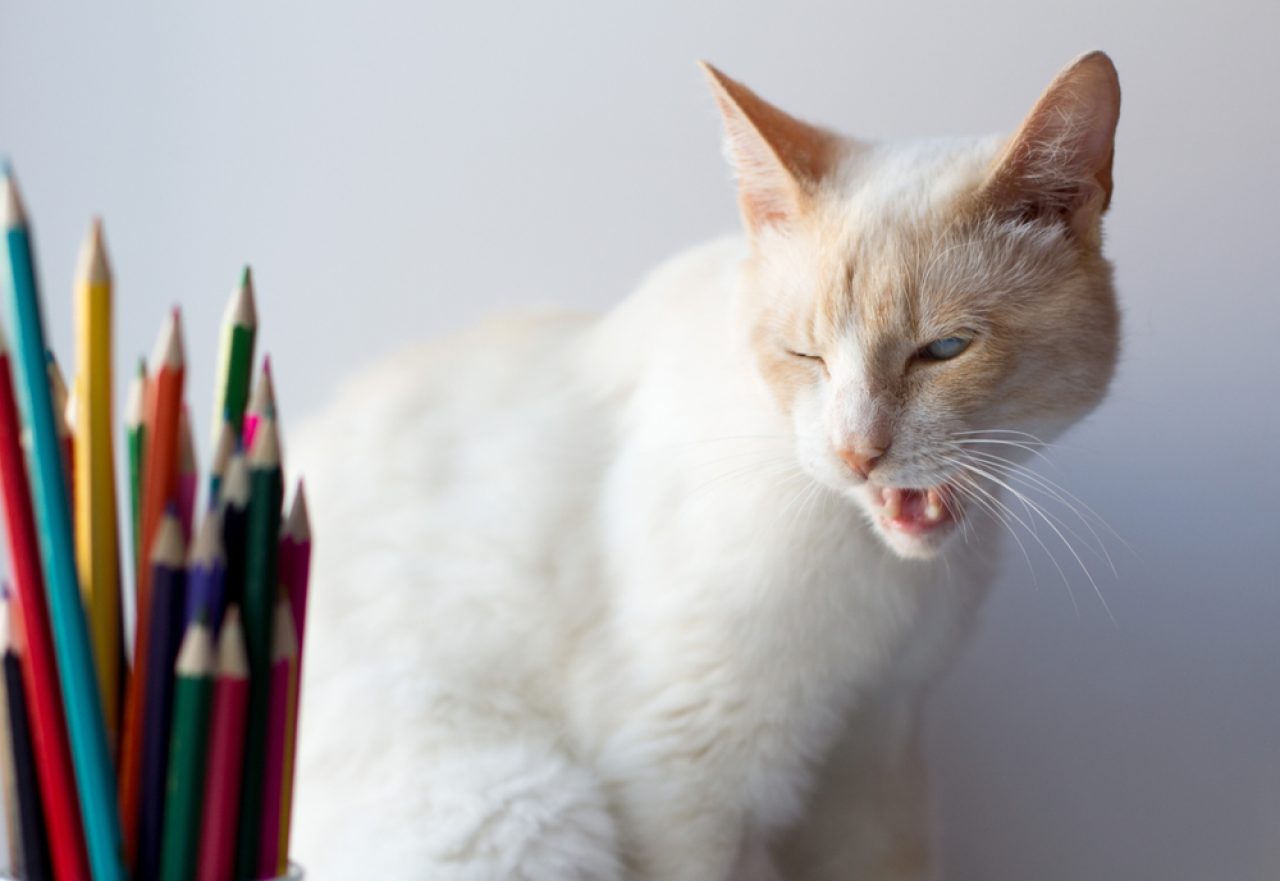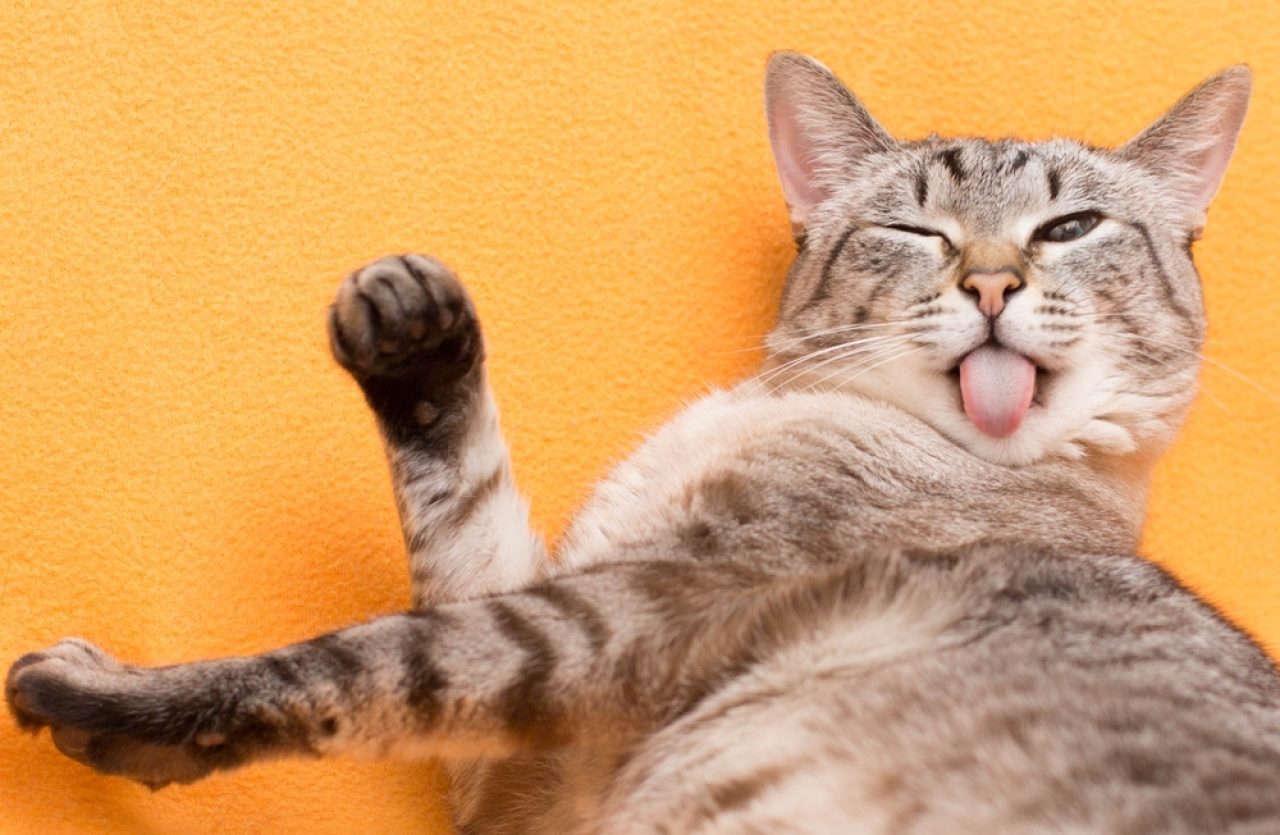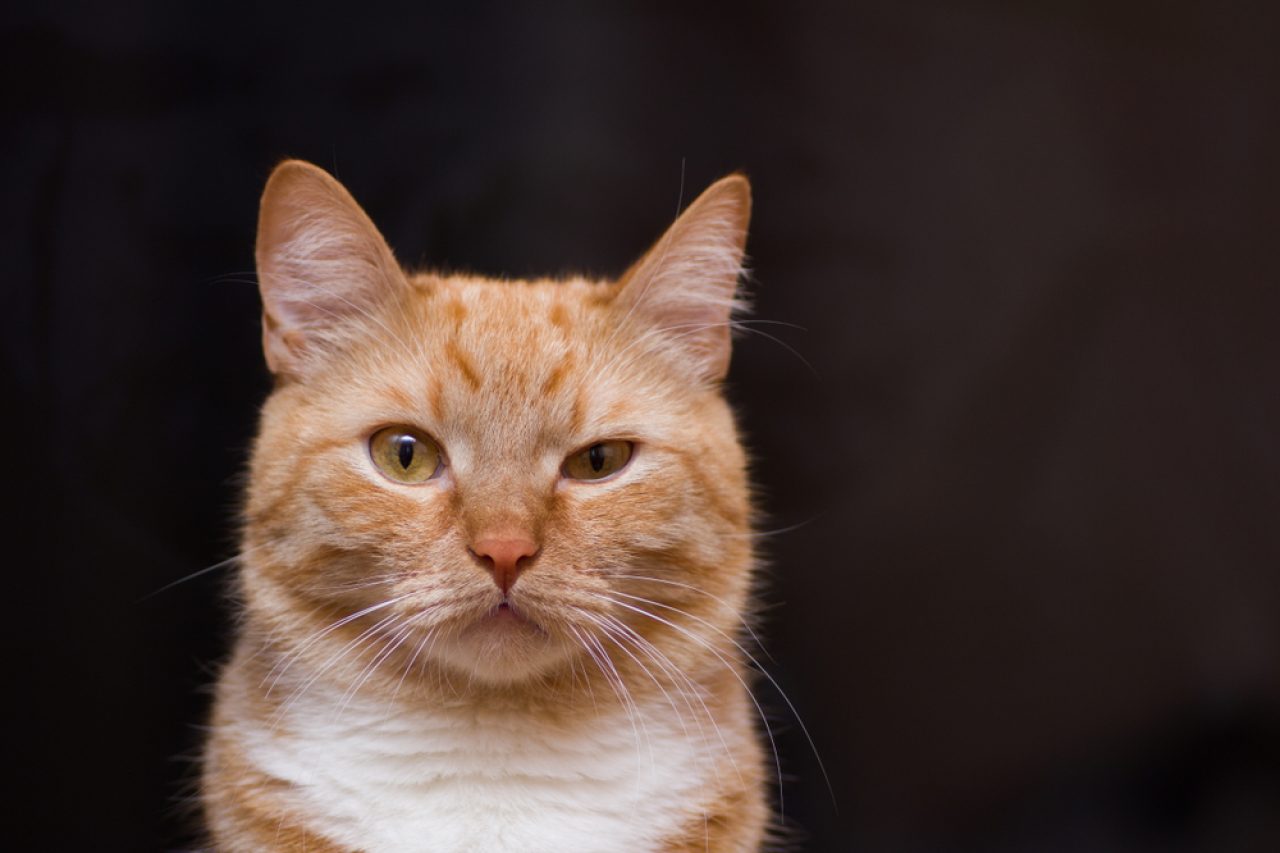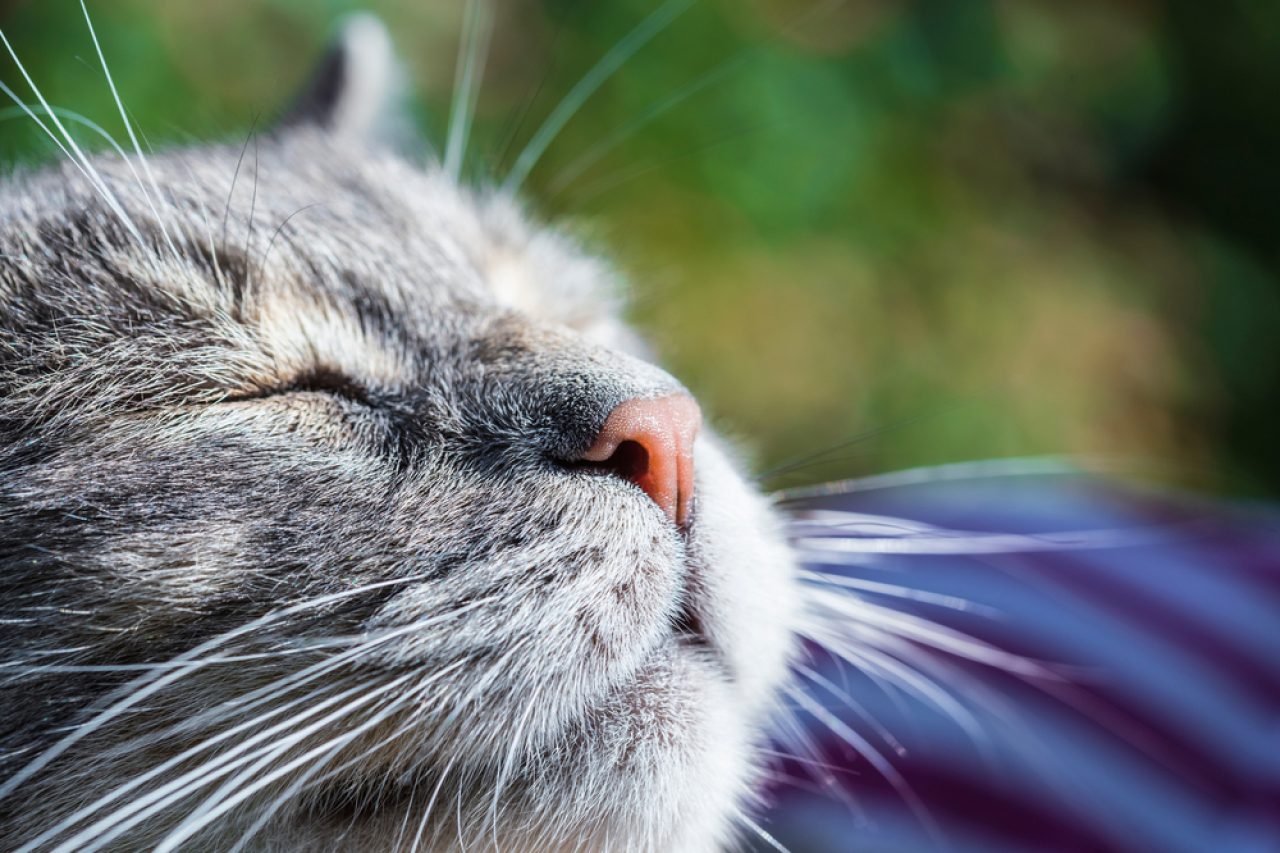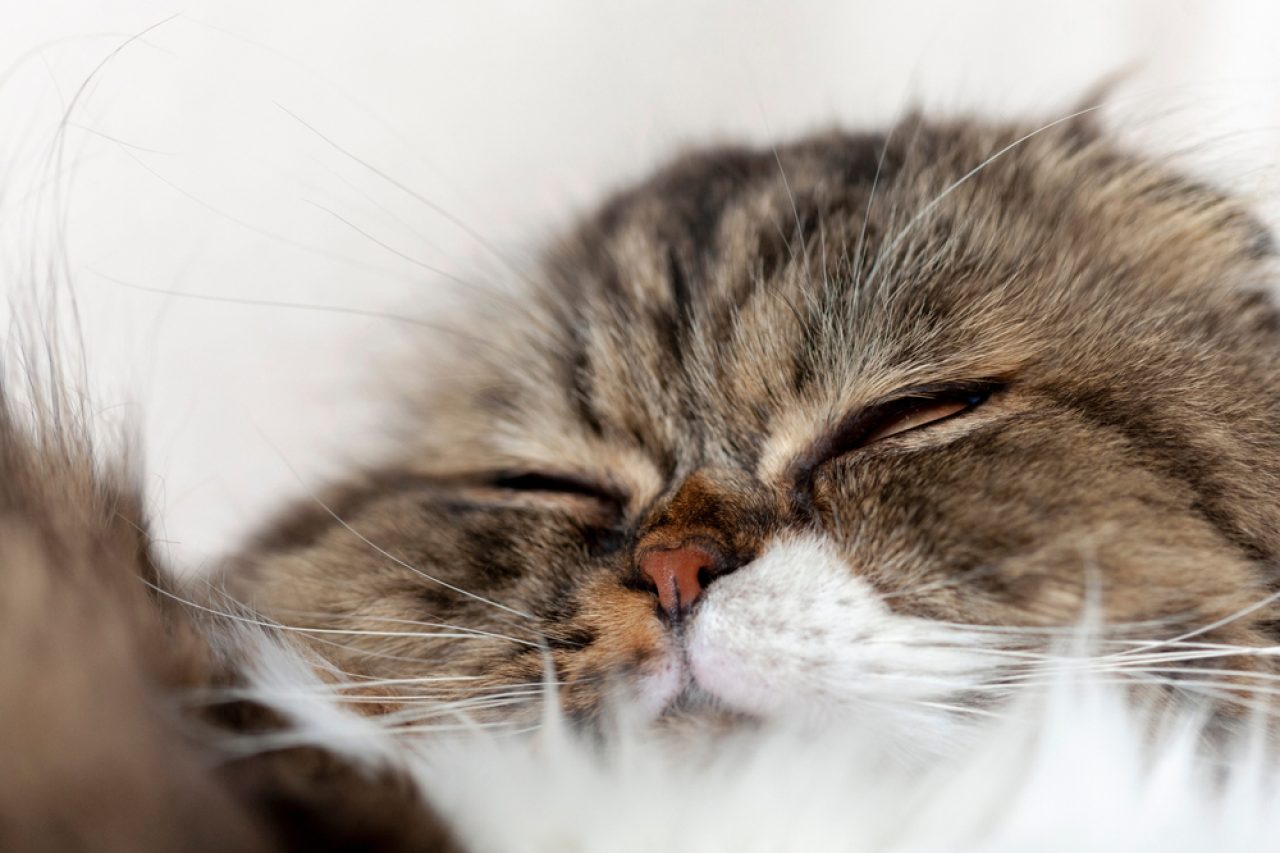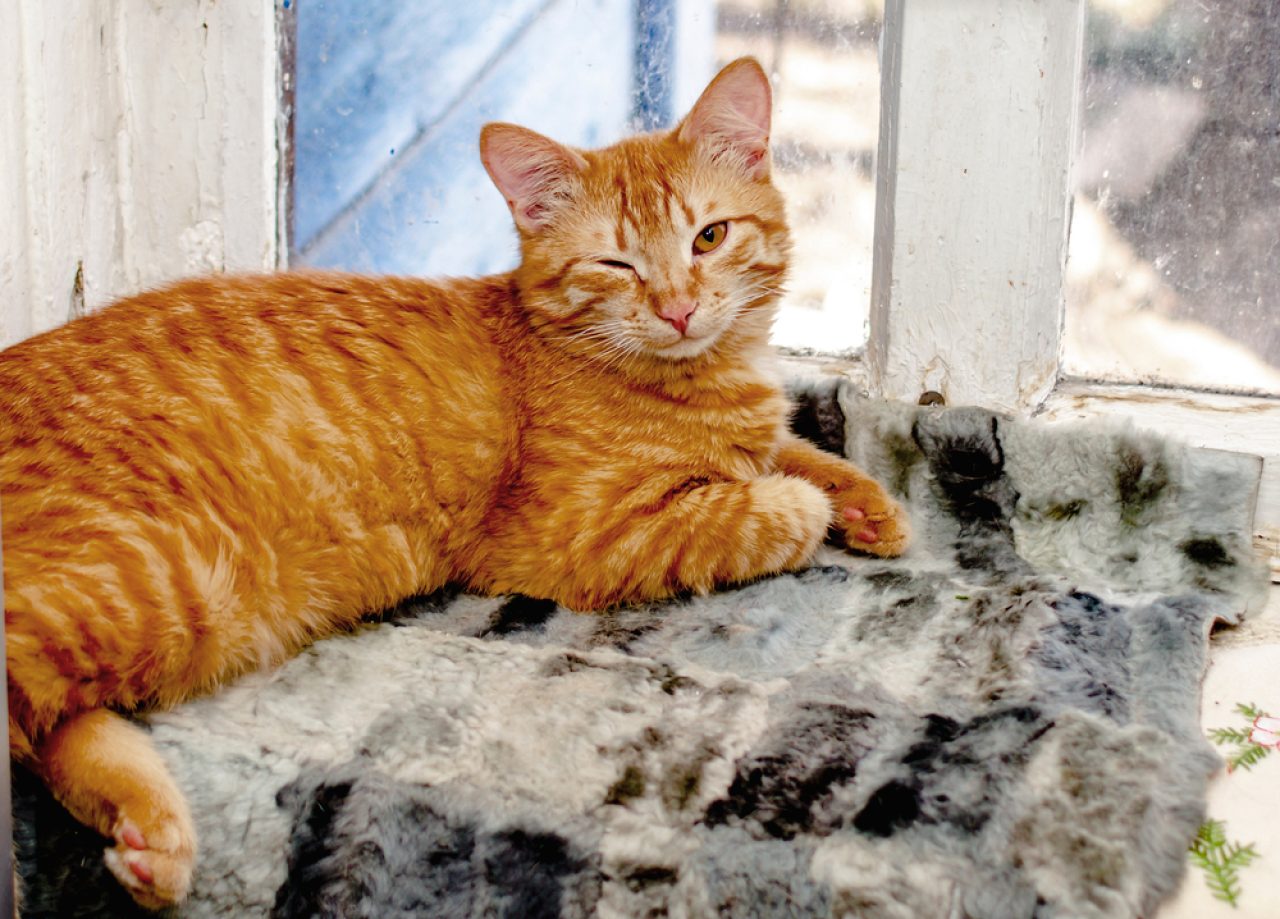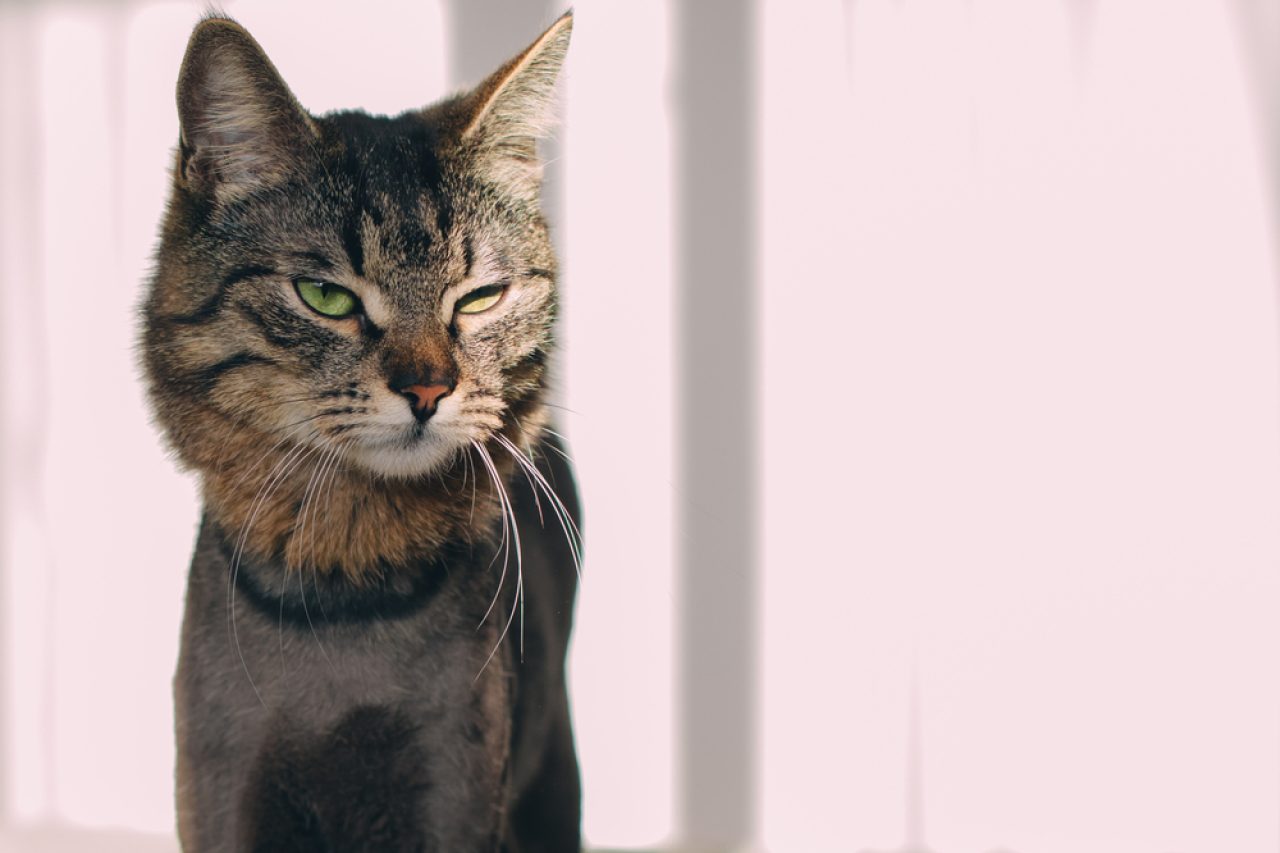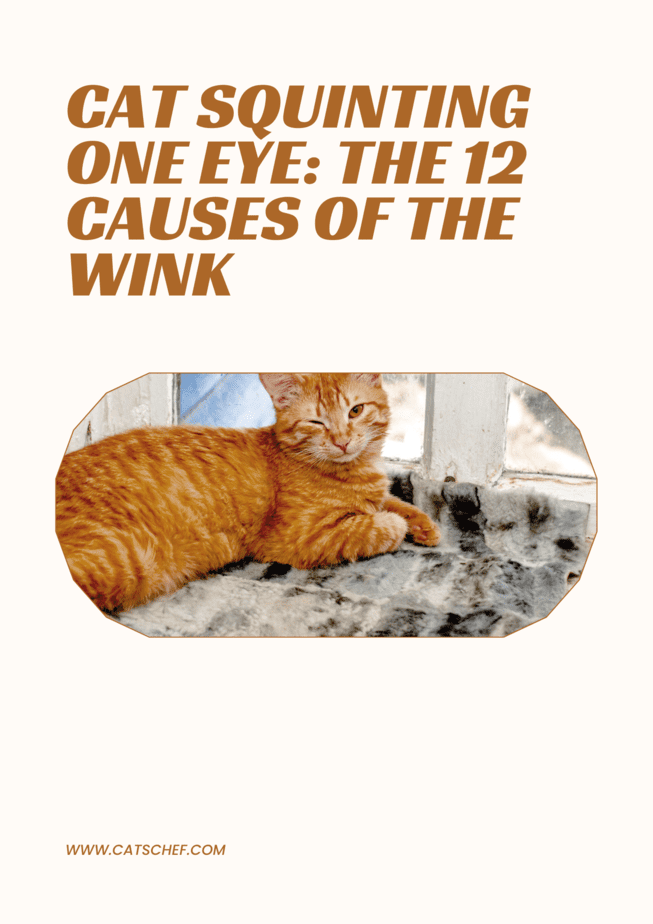📖 Table of Content:
If your cat’s squinting one eye, there might be some alarm bells going off in your head. You don’t have to tell me how worrying about your pet’s well-being can make you go crazy. Trust me, I go through such shocks almost every week.
This is especially true if you have a pet that’s more rambunctious or prone to certain medical conditions.
You always have to wonder if she’s okay, whether she’s hurting, or if there’s some other danger lurking behind the corner.
Sometimes, it’s nothing to fret about and we can relax. Other times, things might get pretty serious, which is what we never want to happen. Therefore, I believe that it’s always very important to observe your cat’s behavior and look for any changes.
There might be some subtle signs that your pet’s experiencing some problems. Sometimes, the sign is pretty much up in your face and you can’t miss it.
If you see your cat squinting one eye, I wouldn’t say she’s just winking at you. Or maybe she is? We can never truly guess correctly without taking a closer look.
Either way, it’s worth pondering over it. After all, the eyes are pretty sensitive parts of the body for all of us. Your feline can’t do much without her eyes, just like you.
Therefore, I’d say it’s best if you do some research and figure out what’s going on. You might be just giving yourself a heart attack for nothing. But you might also be just on time for dealing with something more serious.
Is she winking?
I know that there’s one answer you wish to hear. Unfortunately, your cat isn’t trying to wink at you. There’s probably a medical reason behind it which can either be easy to solve or something of a more dangerous nature.
Perhaps you came home from work and you noticed something strange about your feline. She’s blinking rapidly and it isn’t those slow blinks she gives you as a sign of love.
She looks just like you when that stupid fly crashed right into your eye and left it sore for a couple of minutes. You conclude that your cat is probably squinting one eye because she feels uncomfortable.
Perhaps she’s also trying to rub it with her front paws. This might look just like she’s bathing herself. However, you should be able to tell the difference between your feline cleaning herself and a problem occurring.
Unfortunately, you come to realize that this isn’t another one of her grooming sessions. Instead, you notice she’s struggling with her pretty eyes.
Don’t blame yourself if you didn’t notice there’s a problem straight away. Cats can be weird and act strangely from time to time.
Also, it’s normal for them to scratch their eyes sometimes or have a reaction to something. However, if your cat keeps squinting one eye for a certain period, make sure to take this seriously.
Why is my cat squinting one eye?
There are a couple of reasons why your cat might be squinting one eye. As I’ve said, it’s not likely that she’s just winking at you.
Felines do this very slowly and at certain times when they feel close to you and most comfortable around you. If your pet’s been pawing at her face and blinking rapidly, it probably has to mean that there’s a problem.
Some of these that I’m going to list can be more dangerous than others. Therefore, you must contact your vet so your furry friend can get the right treatment.
1. Conjunctivitis
If your cat is squinting one eye, she might have conjunctivitis. It’s a condition that’s also known as “pink eye.” It develops as a result of inflammation.
Although cats can only spread this condition among themselves, the feline version has the same high level of contagiousness as the pink eye in humans.
One thing that gives this problem away is the teary eyes. Depending on the condition, the eye discharge may be clear, yellow, green, or even dark, rusty red.
Other symptoms of this condition include swelling, and reddening inside the eye, which can be visible in both eyes. Additionally, you might notice sneezing or nasal discharge if your pet has an upper respiratory illness.
Conjunctivitis is usually treated with topical antibiotics in the form of drops or ointments. This eye disorder is often caused by Feline Herpes Virus 1 (FHV-1). Depending on the severity of the flare-up, your veterinarian may prescribe further treatment to control the virus.
2. Other eye infections
Unfortunately for your feline, there are other eye infections that she might suffer from besides conjunctivitis.
In most cases, they are caused by an upper respiratory infection that travels to the eyes. The underlying cause of an eye infection determines whether or not it’s contagious.
There are several causes of eye infections, including bacteria, viral infections, fungi, and parasites. One thing that’s common to all of these is a symptom: a cat squinting one eye.
In addition to redness and swelling, eye discharge, and sneezing, your pet might exhibit other symptoms. These involve nasal discharge, a high fever, and fatigue.
In most cases, your vet will treat the underlying infection which causes your pet’s discomfort. A mild infection can usually be treated by resting, hydrating, and eating well.
3. Glaucoma
Glaucoma can be a difficult condition. Therefore, it should be taken seriously and treated quickly. Otherwise, this might bring on a lot more trouble.
This condition results from strain in the eye and it’s the main cause of a pet’s impaired vision. Next to your cat squinting one eye, you might see some tears forming.
Glaucoma incorporates irritation, growths, irregularities, eye injury, and contaminations. If your cat has glaucoma, you will notice your feline squinting, scouring, crying, yowling, and avoiding people.
Also, if you take a look at her eyes, you’ll notice that they are runny, rosy, and overcast. In severe cases, the eyeball may also be enlarged.
If you notice these symptoms and suspect that your cat has glaucoma, you should take her to the vet right away. If the strain in the eye is reduced sooner, there’s a better chance of saving the eye. Glaucoma disappears in mild cases when the underlying cause is resolved.
Nonetheless, more severe cases will necessitate treatment and prescriptions, and the development should be slowed and avoided. Also, keep in mind that in the worst-case scenario, your feline’s eye may need to be removed, so you gotta act quickly.
4. Corneal ulcers
Open sores on the surface of the eye, called corneal ulcers, are a potentially dangerous disease that may make the afflicted area of the eye seem clouded.
Eye traumas, persistent dry eyes, and structural anomalies can all cause corneal ulcers. Additionally, eye infections, particularly those that are left untreated, might contribute to the development of this condition.
This can look like open bruises on the surface of the eye – the impacted area darkens which might look like your cat’s gotten a black eye somewhere!
Eye diseases that haven’t been treated can also lead to this condition. You will notice redness followed by your cat squinting and scouring.
Some corneal ulcers heal when the underlying cause is addressed. Your vet might prescribe something to ease your cat’s discomfort. However, if the ulcers are serious enough, your vet might recommend surgery.
In any case, corneal ulcers are treatable if you act on time and your feline gets proper treatment. Otherwise, if left untreated, it can cause deformation and visual impairment.
5. Blepharospasm
Blepharospasm is defined as eye inflammation, which results in your cat squinting one eye. The condition usually reflects in rapid blinking, which eventually turns into a completely shut-eye.
It’s an indication that something’s wrong with the eye or eyelid. Usually, it indicates a disease or injury, similar to those previously mentioned.
Difficult circumstances cause blepharospasm by influencing the free sensitive spots in the cornea and conjunctival layers. Also, foreign bodies might irritate the eyelids and conjunctiva. As a result, you have your cat squinting one eye.
Contaminations can also cause the eyelids and conjunctiva to swell. Bacterial diseases might cause abscesses in the eyelid organs or a generally poor state of the eyelids.
6. Bacterial and viral infections
If you notice your feline exhibiting some symptoms in the form of runny eyes with green discharge, you should get concerned. These are almost a guarantee that your feline has a viral or bacterial infection.
These illnesses are commonly referred to as Viral Rhinitis, Cat Flu, or Influenza. Cat herpesvirus can cause Viral Rhinotracheitis by influencing the conjunctiva, causing the eyelids to enlarge.
You might notice an initially watery discharge. Your feline’s eyes may heal, but the infection could remain in the tissues. When felines are under stress, this problem might become more visible.
Cat Calicivirus causes contamination with symptoms similar to cat-like herpesviruses, such as squinting, eye discharge, conjunctivitis, and blepharospasm. Calicivirus in cats is a common condition caused by different strains.
Also, Chlamydophila felis is the cause of cat pneumonitis. If this is the case, you’ll notice that your cat has aroused eyes that have become ragged and red. Pneumonitis can also cause eye discharge, and it can lead to more serious conjunctivitis.
7. Cataract
A cataract is a hazy area that develops in the lens of the eye. In this manner, light is blocked before it can enter the eye’s back. That results in reduced eyesight and, in more extreme circumstances, blindness.
This illness may be a result of age, but it can also lead to diabetes or uveal inflammation in the eyes. Additionally, exposure to radiation, poisonous compounds, or an electric shock might cause this disease. Also, it may occasionally be caused by your cat’s calcium deficiency.
Your cat’s eyes will seem milky and foggy if she has a cataract. You won’t realize the condition has worsened until it substantially compromises your pet’s vision. Your cat might only demonstrate her poor vision by moving slowly in low light, stumbling over things, squinting one eye, etc.
Also, she may be losing weight and urinating frequently due to diabetes mellitus, which is also producing cataracts.
8. Eye trauma
In many cases, your cat squinting one eye is the result of an injury. It can happen to indoor felines, don’t ask me how.
But this is common, especially if you have a furry friend that likes the outdoors and is a bit adventurous. Perhaps it’s a result of felines battling or running into sharp objects.
Aside from squinting, the feline’s eye may let some discharge out. This can look like tears but it’s easy to tell those apart because the discharge is usually a green or yellow color.
Besides, you may also notice swelling and redness around the eye. Try not to be surprised if you see your cat’s third eyelid. Also, the scratch on the outer layer of the eye may be visible at times.
If your feline’s eye bothering happens along these lines, I suggest that you go to the vet as soon as possible. Things like these can deteriorate when contaminated and cause vision impairment and blindness.
9. Anisocoria
Anisocoria is a condition in which the feline’s pupils aren’t the same size. This could indicate fringe nerve problems, glaucoma, corneal injury, or irritation in the eye’s interior or the focal sensory system.
The impacted eye’s eyelid will sag, and the feline will frequently scour or squint it. The treatment of this condition is almost entirely dependent on the underlying cause.
Therefore, make sure you observe your pet’s behavior and see if there’s anything unusual about it. You might think she’s just bathing herself, but there’s something different this time.
If your cat’s squinting one eye while also pawing at it, it might be the right time to visit your vet.
10. Your poor pet suffers from eye irritation
Although feline eyes are not the same as human eyes, they function in the same way. Eye irritation can occur as a result of eye irritants such as cleaning synthetics, aroma, solid scents, residue, and tobacco smoke.
Any of these things could cause the feline’s irritated eye. If they come into contact with your cat’s eye, it will most likely be painful. You may notice your cat squinting one eye or even pawing at it.
In the human world, this would be the same as us rubbing our eyes when something gets in the way. Perhaps your cat’s impacted eye is also red and produces discharge, just like ours.
Make sure you figure out what’s irritating your pet’s eyes and remove them from it. The best thing you could do is to try and rinse her eyes but we all know it’s nearly a mission impossible!
Even if this is the case, you might be worried because the symptoms of an irritated eye are too similar to those of a serious condition.
To ease your worries, take a trip to your vet. It’s good for you to relax when you hear those comforting words from your vet. “Everything’s fine with your furry friend!”
11. Keratoconjunctivitis sicca
Keratoconjunctivitis is also known as the dry eye symptom. It refers to the constant aggravation of the cornea. Usually, the conjunctival tissues are dry due to the lack of tears.
However, we all know how much tears are important because they remove excess dirt and debris from the eye. When there’s no tear production, the feline’s eye is constantly bothered, resulting in your cat squinting one eye.
In some cases, the feline herpes virus may cause this condition. On the other hand, it could be some sort of constant damage to the tear-producing glands.
We don’t want your feline crying, of course. But she should have some tears in stock just in case she needs to flush out some of the debris from her eyes.
12. Uveitis
Uveitis is a condition in which the anterior portion of the eye is aroused, specifically between the iris and the cornea. This condition might make the eyes appear dim and cloudy.
At times, the lower part of the eye may be coated with red or white-yellowish residue. In this case, it’s possible that the eye discharge doesn’t appear but the eyes may appear watery due to inflammation.
The development of uveitis doesn’t have to mean the sickness of the eye. The possible causes might stem from other parts of the body.
Diabetes, extreme contaminations, hypertension, disease, and gruff injury are all examples of auto-invulnerable conditions. As a result, this causes uveitis which forces your cat to squint her eye!
What should you do if you see your cat squinting one eye?
It’s safe to say that the eyes are very sensitive organs for both you and your furry friend. They’re essential for many things in life and it wouldn’t be the best-case scenario to be without them.
If at any point you notice your cat squinting one eye, you should make sure to take her to the vet. It’s possible that it’s a minor problem, such as a simple irritation.
On the other hand, it could be an underlying condition and eye squinting might be just one of the symptoms. If this is the case, both eyes can be affected if not treated properly.
You’d be surprised how some seemingly simple scratches and cuts might make your life a living hell. A problem could easily arise from one injury, which usually gets infected very quickly.
If you don’t take immediate action and take your cat to get proper treatment, things could get serious. The infections and disease might develop to the point where there’s no going back.
Unfortunately, in some cases, these might leave your cat not only squinting on one eye but losing it. Don’t feel free to prescribe medication yourself, as this can only further complicate things.
Can you prevent eye problems?
Immunization is of prime significance to safeguarding your feline against respiratory infections, such as cat herpesvirus and cat calicivirus.
In order to prevent some serious and horrendous wounds to the eyes, don’t leave objects with sharp edges lying around that the feline could see as a toy.
Make sure you have a spot for those where your cat can’t reach. I know this might sound like a mission impossible, but it’s a must.
Babyproofing your entire house might sound funny to you until something similar happens. It’s highly recommendable if you have a mischievous cat.
Also, don’t forget to groom your feline regularly. Those with long hair and dense coats might have their fur irritating their eyes. So make sure you brush your cat every week.
Your pet won’t come to you screaming for help if there’s something stuck in her eye. She’ll probably rather hide away in the corner of the house or continue squinting her eye.
Therefore, make sure you check on your pet every night before you go to bed. Engage in some cuddle sessions and trace your fingers along her body for any possible injuries. Don’t forget to closely inspect her eyes and face.
Bottom line
If your cat’s squinting one eye, you should always be prepared for the worst. Now, I’m not saying that it is always the worst-case scenario.
However, if you notice some other signs of discomfort, such as rubbing her eyes, rapid blinking, or watery eyes, look for the vet’s assistance as fast as you can.
It might be something harmless, such as a reaction to an irritant. This is usually resolved quickly by removing the object that’s causing your pet discomfort.
On the other hand, this could be something more serious that requires medical treatment from the vet. Otherwise, untreated conditions could wreak havoc on your feline’s body. If this is the case, you shouldn’t waste any more time and head straight to the vet’s office!
